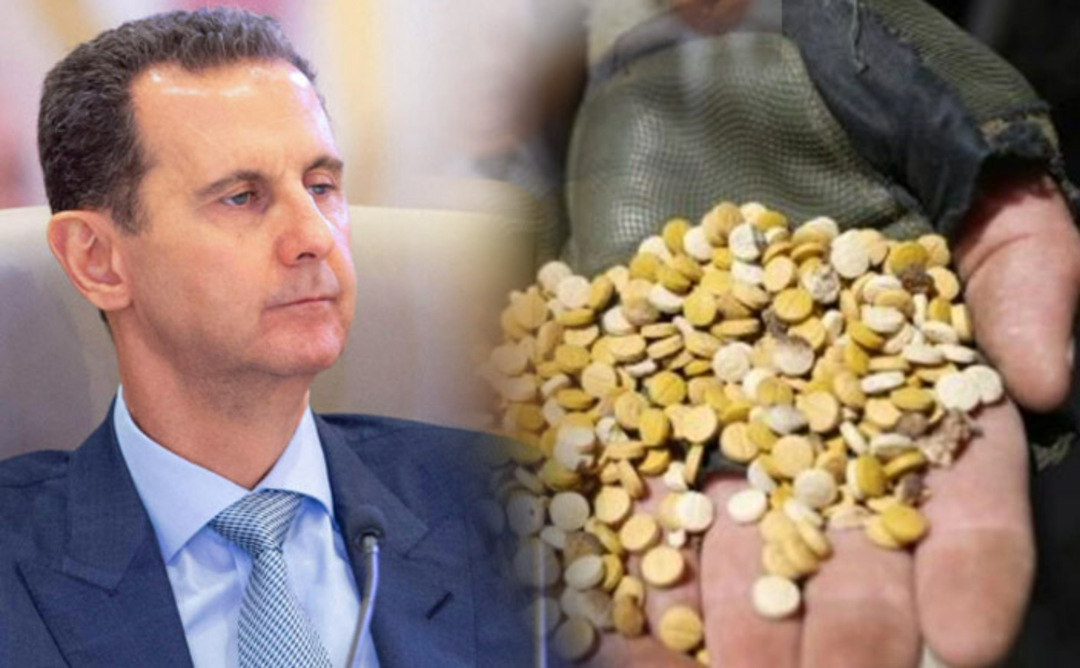-
An Empire Stretching from Damascus to Berlin: Syrian Captagon Networks Invade Germany
-
The Syrian regime's involvement in the Captagon trade reveals a systematic strategy to circumvent international sanctions and finance its activities, calling for a reassessment of Western policies tow

An extensive investigative report conducted by several prominent German media institutions, including the First German Channel (ARD), Frankfurter Allgemeine newspaper, and the Bayern Media Group, has revealed the scale and danger of the Syrian regime's involvement in the global Captagon trade, and the unprecedented expansion of its activities in Germany and Europe.
The investigation, which took two years and included reviewing thousands of pages of documents and secret investigations, as well as interviews with dozens of German, European, American, and Arab security experts, showed that the Assad regime is making astronomical profits from the Captagon trade, reaching about $50 billion annually.
These huge profits serve as a lifeline for the regime under international sanctions, enabling it to remain in power despite international pressure.
The investigation revealed a dangerous strategic shift in the activities of Syrian networks associated with the regime, as they began to move from merely using Germany as a transit country for smuggling Captagon to producing it locally on German soil. A Captagon production laboratory was discovered in the German city of Regensburg, indicating deep penetration of Syrian regime operations in the heart of Europe.
The investigation pointed out that the production costs of Captagon are extremely low, with the raw material price per pill not exceeding a few cents, while a single pill is sold on Arab streets for between $15 to $20. This huge profit margin explains the amount of money the Syrian regime is making from this trade.
According to the investigation, Syrian networks linked to the regime operate in an organized and complex manner across European borders. One of the smugglers contacted reported that Syrian and Lebanese gangs are planning to change their strategy, so that only the powder is sent to Europe, with the pills being manufactured locally. This shift aims to reduce the risks of discovery and increase profits.
Hezbollah, the Syrian regime's main ally, actively participates in this lucrative trade, further complicating the security and geopolitical landscape. Estimates suggest that moving production to countries like Germany could significantly increase the profits from this trade, enhancing the ability of the Syrian regime and its allies to finance their operations.
These developments have raised serious concerns among German and European security agencies. Lutz Preisler, head of the drug enforcement department at the German Federal Criminal Police Office (BKA), stated that about 90% of the Captagon trade remains hidden from investigators in Germany, highlighting the scale of the challenge facing security authorities in combating this trade.
In the same context, Antonio Hubbard, a former agent at the U.S. Drug Enforcement Administration (DEA), warned of the seriousness of the situation, saying: "All countries should be concerned about the rise of Captagon." He added that smugglers are likely keeping quantities of smuggled drugs and promoting them in the European market, posing a direct threat to local communities.
In light of these data, German authorities have begun to intensify their efforts to confront this growing threat. A working meeting was held bringing together investigators from the Federal Criminal Police, state police, and prosecutors to discuss the Captagon problem and related investigations. However, these efforts still seem to be in their early stages and need greater coordination at the European and international levels.
The question remains: Will European efforts succeed in facing this serious security challenge, and how will this affect relations with the Syrian regime and its allies in the region? Will these revelations lead to a reconsideration of Western policies towards Syria and Hezbollah? The answer to these questions will determine the course of confrontation with international drug trade and its geopolitical implications in the near future.
Levant-Deutsche Welle
You May Also Like
Popular Posts
Caricature
Syrians' concerns now
- December 10, 2024
Syrians' concerns now #Syria
#Bashar_al-Assad
#Liberation_of_Syria
#Syrians
#Future_of_Syria
#Levant_News

opinion
Report
ads
Newsletter
Subscribe to our mailing list to get the new updates!





















